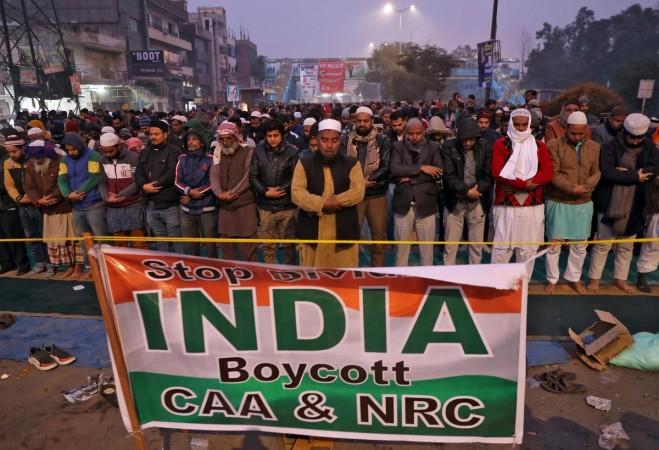A day after Microsoft Corp's Chief Executive Officer Satya Nadella said the situation surrounding the contentious Citizenship Amendment Act (CAA) is "sad", his company put out a statement expressing hope for an immigrant in India who could benefit the society and economy.
"Every country will and should define its borders, protect national security and set immigration policy accordingly. And in democracies, that is something the people and their governments will debate and define within those bounds," said Nadella.

He said that he was shaped by his multicultural Indian heritage and the immigrant experience. "My hope is for an India where an immigrant can aspire to found a prosperous start-up or lead a multinational corporation benefiting Indian society and the economy at large," he added.
The statement comes a day after he joined the CAA debate by saying that whatever is happening in India due to this new legislation is just bad.
"I think what is happening is sad...It's just bad...I would love to see a Bangladeshi immigrant who comes to India and creates the next unicorn in India or become the next CEO of Infosys," tweeted Ben Smith, editor-in-chief of buzzfeednews.com, who asked Microsoft CEO about the CAA at the meeting.
Political backlash
Nadella's statement did not go down well with the Bharatiya Janata Party. Party MP Meenakshi Lekhi trained guns at the corporate biggie on Tuesday.

Calling it a "perfect example" of "How literate need to be educated", Lekhi tweeted: "Precise reason for CAA to grant opportunities to persecuted minorities from Bangladesh, Pakistan and Afghanistan.
"How about granting these opportunities to Syrian Muslims instead of Yezidis in USA?"
What does the CAA say?
The CAA seeks to provide Indian nationality to Hindus, Christians, Sikhs, Parsis, Jains and Buddhists fleeing persecution from Pakistan, Afghanistan and Bangladesh.

The Citizenship Amendment Act seeks to amend the Citizenship Act, 1955 to make Hindu, Sikh, Buddhist, Jain, Parsi, and Christian illegal migrants from Afghanistan, Bangladesh, and Pakistan, eligible for citizenship of India.
Highlights of the Citizenship Amendment Act
- Granting nationality to non-Muslim immigrants from neighbouring countries.
- The Citizenship Act, 1955, one of the requirements for citizenship was that the applicant must have resided in India in the last 12 months, as well as for 11 of the previous 14 years.
- Now the amendment relaxes the second requirement — from 11 years to six years.
- Provides that the registration of Overseas Citizen of India (OCI) cardholders may be cancelled if they violate any law.

















